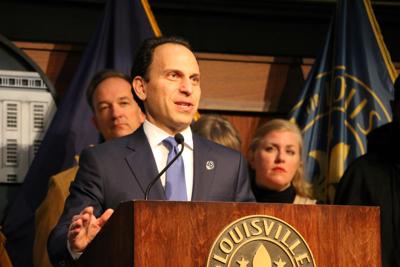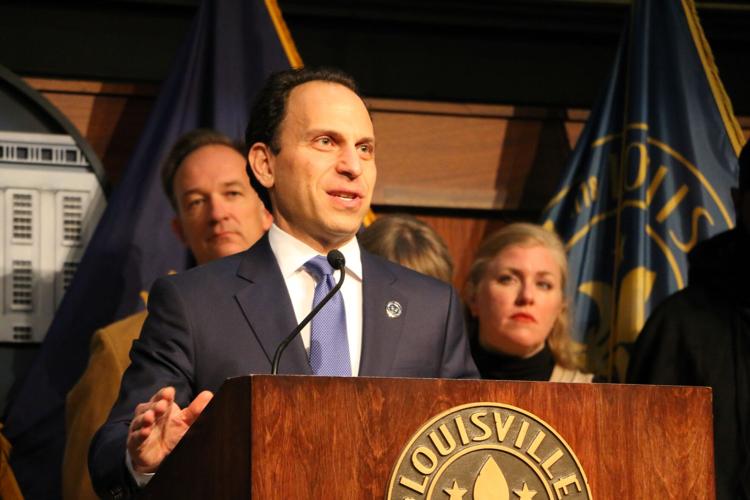LOUISVILLE, Ky. (WDRB) -- Mayor Craig Greenberg said Thursday he won’t sign legislation the Metro Council passed this month that seeks to protect people from being displaced by new residential developments, saying it could delay affordable housing projects.
The measure cleared the council on a 25-0 vote Nov. 9 after months of debate and revisions in committee. Greenberg’s decision not to sign it still allows the ordinance to become law, but he said chose not to veto it in hopes his administration can work with the council to make changes "moving forward."
Greenberg told reporters at the Galt House Hotel that he believes the ordinance doesn’t achieve its goals of aiding people at risk of displacement and instead will create additional hurdles for housing builders.
One of the mayor's main goals is to build 15,000 affordable housing units in Louisville.
"At a time when we need to be making it easier to build more affordable housing across all parts of our city, this ordinance makes it harder to develop affordable housing," he said. "It creates delays and uncertainties for many affordable housing projects that are being proposed right now — or will be — when we need to be making it easier."
Council member Jecorey Arthur (I-4th District), the ordinance’s lead sponsor, said in an interview that Greenberg’s claims were "bogus" and accused the mayor and his administration of failing to make their concerns known while the ordinance spent more than a half-year at the council.
"I think he's misleading folks, that he's not being honest about where he is with the legislation," Arthur said.
The legislation requires any residential project asking for public land, tax increment financing, tax abatements or other incentives to undergo an assessment to determine whether it could force people from their homes.
A "results matrix" created by researchers selected by Metro Government’s Office of Housing and Community Development would then determine when a project wouldn't qualify for those public resources. It, and a form used by developers, would have to be ratified by the Metro Council.
Greenberg said he’s concerned that that matrix will take some time to create. "And there's not much guidance in terms of what the matrix is actually supposed to measure or show," he added. "It's another delay for any affordable housing project that might have city resources being invested."
The assessments would begin six months after the ordinance takes effect. But in a letter to council members, Greenberg wrote that his administration doesn’t believe "a meaningful or accurate tool can be created" in that time.
As a result, he warned, projects that aim to use city resources couldn’t go forward starting May 1.
"Any delay, particularly during a time of high interest rates, will impact the financial feasibility of any project and will certainly deter affordable housing builders from pursuing new projects in Louisville," the mayor wrote.
He also raised concerns about the measure including no exemption for the city’s landbank agency, which Authority, which holds vacant and abandoned properties for re-sale.
And he noted an "overly broad definition" of city resources that he said includes funds going into the Louisville Affordable Housing Trust Fund. "While it has been suggested that the Affordable Housing Trust Fund would be exempt, there is no stated exemption in the ordinance," he wrote.
Arthur took issue with the mayor's concerns about the definition of public resources, saying that after Jeff O'Brien, the city's economic development director, spoke with him while the ordinance was in committee, "we made changes to clarify what it meant."
Arthur also aid the legislation has developers "afraid."
"They don't get to take advantage of city government and our public resources anymore," he said. Greenberg, he claimed, is "showing himself that he's working for the developers, for the wealthy developers, and not for the tenants who've been struggling and fighting to maintain their housing."
Asked directly at the Galt House which specific groups or developers contacted his office about the ordinance, Greenberg said: "This is based on our reading of the legislation. I haven't spoken to any developers specifically about this ordinance."
This story may be updated.
Copyright 2023 WDRB Media. All Rights Reserved.














